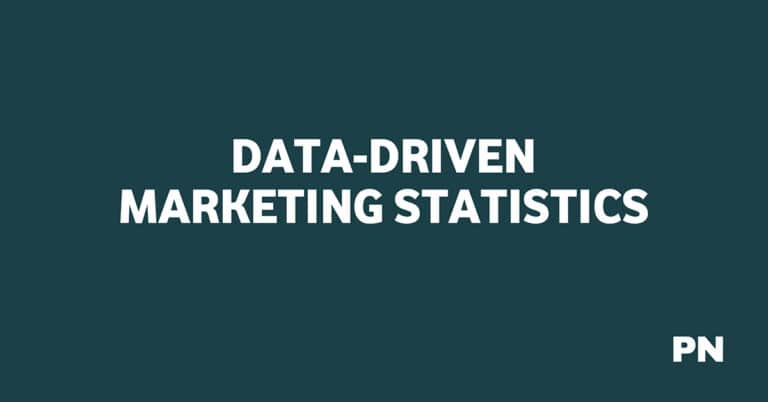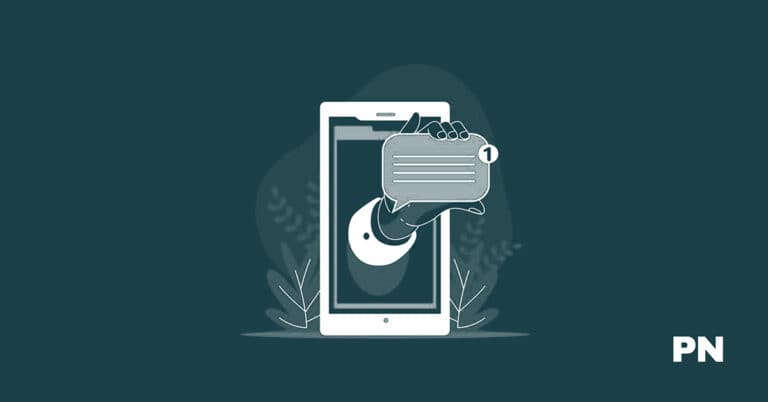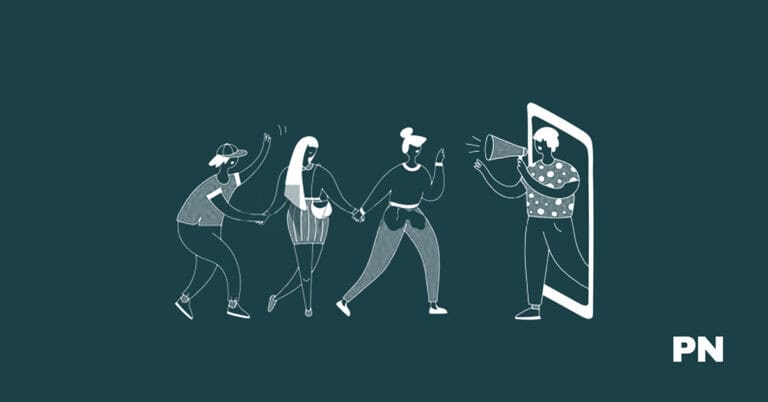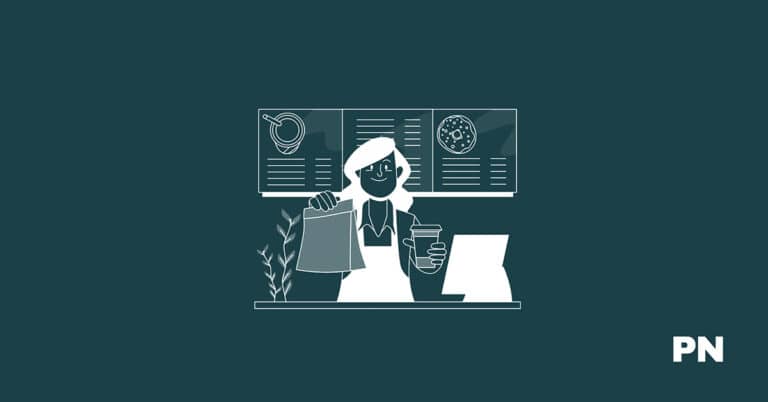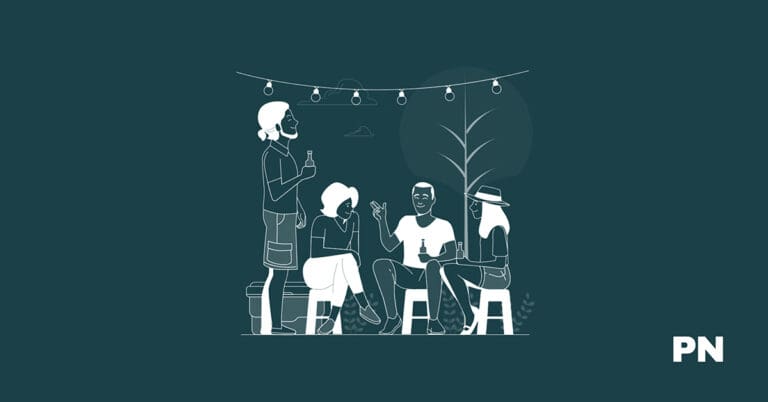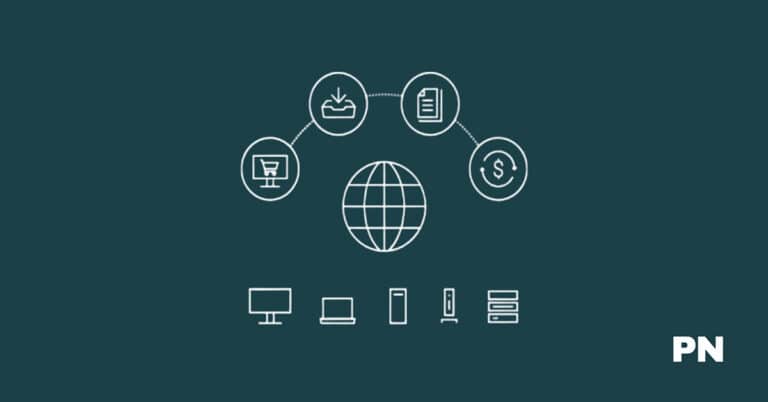60 WhatsApp Marketing Statistics No Marketer Should Miss
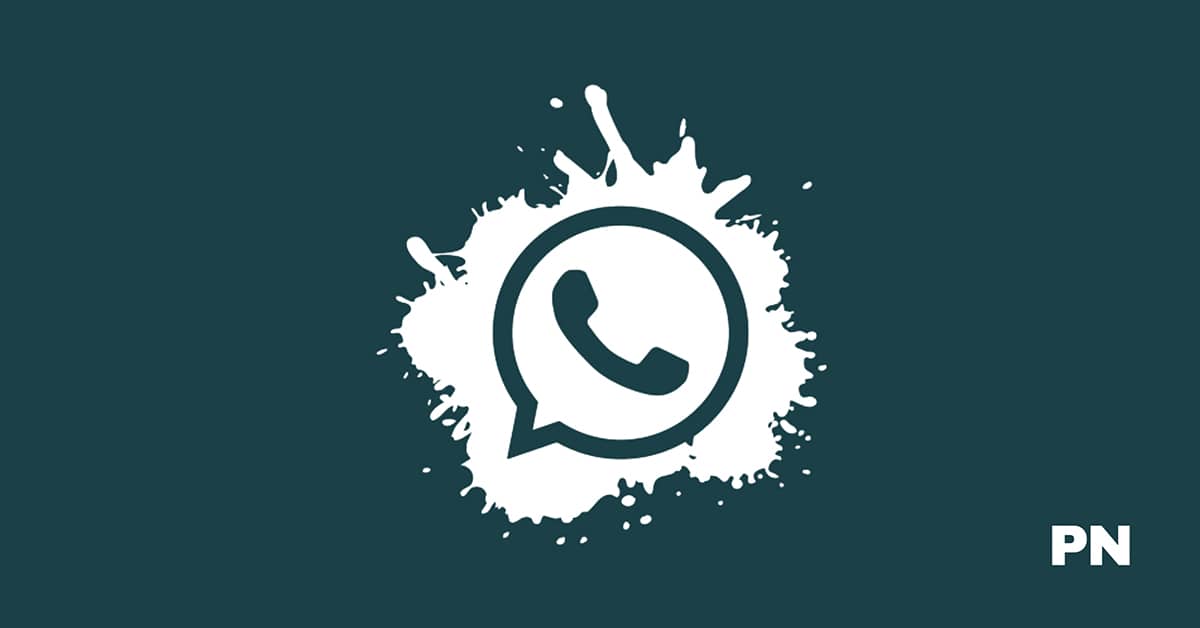
With over two billion users globally and 100 billion messages sent daily, WhatsApp has evolved into a powerhouse for digital marketing.
Understanding how users engage with brands on WhatsApp is crucial for effective marketing.
Most users prefer brands that offer this communication channel, so embracing WhatsApp can reshape customer interactions and sales outcomes.
By integrating WhatsApp into their marketing mix, businesses meet customer expectations for prompt and personalized communication.
1. More than 140 billion messages are sent each day on WhatsApp.
This growth indicates that WhatsApp is dominant in the messaging app market.
The rapid increase can be linked to the app’s reliable service and the expanding user base, which, as of 2024, was forecasted to cross the 3 billion mark.
2. WhatsApp’s worldwide user base consists of 47.1% female users. Another 52.8% were male.
(Source: Backlinko)
WhatsApp’s user demographics are a significant aspect of understanding its global reach and utility.
Tailoring your marketing content to appeal to female users can be strategic since nearly half of the platform’s users identify as female.
Also, content and marketing efforts designed for a male audience could potentially reach a larger portion of WhatsApp users.
3. 76% of users from North Africa and the Middle East prefer buying from a brand if they are also on WhatsApp.
(Source: Spectrm)
When navigating the competitive landscape of digital marketing in the Middle East and North Africa (MENA), it’s crucial to consider platforms that resonate with your audience.
This platform isn’t just for personal communication; it’s a powerful business tool that can influence purchasing decisions.
WhatsApp marketing connects you directly with your consumers, tapping into the app’s widespread popularity. In this region, users expect a more personal and immediate interaction with businesses.
4. By 2024, the total spending on WhatsApp business platform will amount to 3.6 billion U.S. dollars.
(Source: Statista)
WhatsApp Business has become a significant tool for companies looking to engage with customers on a platform they use daily.
Your business may already be leveraging it, or perhaps you’re considering its potential for customer outreach and support.
In regions with high adoption rates, such as India, which saw the most WhatsApp Business downloads in recent years, there’s a clear indication of where the platform’s utility is being maximized.
Focusing on areas with high usage rates could be advantageous as a business.
5. Around 50 million companies worldwide (except China) use WhatsApp for marketing purposes.
(Source: GlobalWebIndex)
WhatsApp Business offers tools tailored for customer engagement and marketing automation, like quick replies and chat labels, making your interaction efficient and organized.
Your use of these tools can enrich customer experience and streamline communication workflows.
WhatsApp Business also facilitates e-commerce activities by allowing catalogues and enabling transaction messages, driving both customer support and sales directly within the app interface.
6. Using WhatsApp Chatbots can help increase lead generation by over 500%.
(Source: Cooby)
Chatbots address a common bottleneck in lead generation: the drop-off from lengthy and tedious forms.
Your chatbot can collect data efficiently by engaging in a conversation that keeps potential leads attentive and less likely to abandon the process.
Although the percentage increase can vary widely between businesses and industries, chatbots’ efficiency in engaging and converting leads is clear.
Remember, your chatbot should be:
- Responsive: Quick to react and keep the conversation flowing.
- Informative: Able to provide value and answer questions throughout the interaction.
- Captivating: Designed to keep the user’s interest peaked until the lead is secured.
By optimizing these aspects, your WhatsApp chatbots can become a powerful tool in your lead generation arsenal, possibly boosting your results significantly.
7. 66% of Users Have Purchased After Communicating with a Brand on WhatsApp.
(Source: Spectrm)
WhatsApp’s conversational nature fosters a personal connection between you and the brands you engage with.
Here’s how WhatsApp influences purchasing decisions:
- Direct Communication: You can have real-time conversations with brands, ask questions, and receive instant feedback.
- Consumer Trust: By chatting on a daily platform, you build confidence in the brand, making you more likely to buy from it.
- Convenience: All your interactions, including the shopping process, can happen within the same chat window.
8. 72% of consumers are likelier to engage with personalized marketing messages on WhatsApp.
(Source: Avochato)
Here’s what personalization looks like:
- Messages addressing recipients by their first name.
- Offers based on past purchase behavior or browsing history.
- Content that matches the consumer’s location, time zone, or language.
To craft personalized experiences, harness data with respect, and adhere to WhatsApp’s privacy policies.
Applying analytical insights from consumer interactions can help you tailor conversations that feel one-on-one, even when they’re scaled.
9. 72% of users say they have never had a negative experience interacting with a brand’s marketing efforts through WhatsApp.
(Source: Spectrm)
This high satisfaction rate can be attributed to WhatsApp’s user-friendly interface and strict policies on spam, which help create a positive environment for brand interaction.
When you use WhatsApp, you benefit from the app’s personal feel.
Brands use the platform to offer customer service and personalized marketing, which resonates well with users.
Moreover, WhatsApp provides end-to-end encryption. This ensures that your conversations with brands are private, further contributing to a positive experience.
10. 80% of small and medium businesses in India view WhatsApp as a crucial channel for scaling their business.
If you’re involved in running a small or medium-sized business in India, likely, you’re already aware of the transformative impact WhatsApp can have.
WhatsApp isn’t just for personal messaging; it’s a powerful tool for engaging with customers and expanding your business reach.
Businesses use WhatsApp to promptly respond to customer inquiries, book orders, and send updates.
They also send promotional material and personalized messages to drive sales.
Additionally, most businesses have their customer support on WhatsApp. Addressing customer issues quickly to provide a seamless service experience.
With features like the WhatsApp Business API, you are empowered to manage a volume of customer interactions efficiently.
11. 46% of users contact a company through a “Contact Us” CTA.
(Source: Cooby)
You have a nearly 1 in 2 chance that a customer will contact you directly via a “Contact Us” CTA on WhatsApp. This direct line of communication is invaluable for immediate interaction and customer service.
Your customers appreciate being able to reach out without having to navigate away from their app of choice.
A straightforward “Contact Us” button can increase user interaction rates.
Also, being readily available for queries helps build trust and credibility with your audience. It signals responsiveness and a willingness to assist, which can be a differentiating factor for your business.
What can you do?
- Ensure your “Contact Us” button is visible and easy to use.
- Prepare your team to respond promptly to inquiries received through this channel.
- Consider automating initial responses to enhance efficiency, always keeping personalization in mind.
Remember, the high engagement rate through the CTA indicates that WhatsApp can be a powerful platform for fostering relationships with customers and driving potential sales.
12. 9% of Users Actively Respond to Discount or Promotion-Related Messages.
(Source: Cooby)
Engagement with promotions on WhatsApp varies depending on factors such as:
- The relevance of the offer to the user.
- The timing of the message.
- How compelling the discount or promotion is.
To enhance the effectiveness of your promotional campaigns on WhatsApp, ensure you target users with relevant offers based on their previous interactions or preferences.
Tailored messages resonate more with users and can lead to higher engagement rates. Also, send offers when users are most active, typically during afternoons and early evenings.
Lastly, maintain a clear and concise message format since WhatsApp users often prefer quick-to-read content.
Remember, each message sent is a direct line to your customer, so make your communication count.
13. WhatsApp is accessible in 180 countries, potentially reaching approximately 2.7 billion users.
(Source: WhatsApp)
WhatsApp breaks language barriers by offering the app in multiple languages, allowing you to communicate with customers in their preferred language.
This inclusivity enhances user experience and potentially boosts engagement with your brand.
Incorporating WhatsApp into your marketing strategy opens doors to a diverse and expansive user base.
14. 85% of consumers are interested in receiving timely and proactive brand communications.
(Source: SuperOffice)
This statistic highlights a general preference for brands that engage with their audience by:
- Sending timely updates: Information about new products, services, or features.
- Offering exclusive deals: Special promotions or discounts directly through WhatsApp.
- Providing customer support: Quick responses and proactive problem-solving tips.
- Sharing relevant content: Educational information, how-to guides, or entertaining content fitting your interests.
Personalized and immediate content should enhance your consumer experience, making WhatsApp an ideal channel for brands to establish this connection.
15. 34% of users in the US message companies about service or technical-related queries.
(Source: Cooby)
This indicates a significant reliance on WhatsApp’s convenience and immediacy for customer service communications.
Here’s a snapshot of what you might experience:
- Speed: Messaging allows for quick exchanges, tending to be faster than emailing and more convenient than voice calls.
- Accessibility: WhatsApp is widely accessible on multiple devices, facilitating communication on the go.
- Record Keeping: Conversations are easy to archive, offering a reference for past communications without extra paperwork or follow-up.
Always verify the official business account when using WhatsApp to contact businesses to avoid scams or unverified information.
16. 20% of Companies See an Increase in Business After Proactively Messaging on WhatsApp.
(Source: WhatsApp Business)
WhatsApp messages allow you to provide timely updates, personalized service, and immediate feedback. This level of engagement can enhance the customer experience and promote loyalty, often leading to increased sales and positive word-of-mouth.
Advancements in AI and machine learning have equipped WhatsApp with smart automation capabilities.
You can schedule messages, set up chatbots for immediate responses, and provide personalized recommendations based on customer data.
This automation streamlines your messaging strategy and ensures consistency in customer interactions.
17. 63% of Frequent Communicators are from North Africa and the Middle East.
(Source: Cooby)
You need to understand the social and cultural context to appreciate why MENA stands out in WhatsApp communication:
- High Mobile Penetration: The region has rapidly increased mobile usage over the past few years, making apps like WhatsApp easily accessible.
- Youthful Population: A considerable youth demographic in these regions is tech-savvy, leading to higher adoption rates of social and communication platforms.
- Language and Localization: WhatsApp supports Arabic, which is widely spoken across MENA, thus improving user experience and engagement.
18. 21% of users directly interact with a brand on WhatsApp through a click-to-WhatsApp ad on Facebook or Instagram.
(Source: Cooby)
These ads are an efficient way for businesses to connect with you, as they capitalize on the seamless transition from social media browsing to private messaging.
If you click the ad, you’re taken straight to a WhatsApp chat with the brand, which streamlines your experience if you’re interested in the product or service advertised.
By integrating click-to-WhatsApp ads, brands are not just expecting passive viewership but inviting active customer engagement, making it a highly interactive marketing strategy.
19. The average WhatsApp user on Android spends 33.5 minutes per day on the app.
(Source: Backlinko)
Understanding user engagement may be essential when planning your WhatsApp marketing strategy.
Engagement with the app varies by demographic and region, but the average time suggests a consistent interaction among users.
As a marketer, these minutes represent critical opportunities to connect with your audience.
Here is a breakdown of usage:
- Morning Check: Users often start their day by checking messages, contributing to daily usage minutes.
- Throughout the Day: WhatsApp serves as a tool for real-time communication, from personal chats to business queries.
- Evening Routine: The app is frequently used in the evening, wrapping up conversations or planning for the next day.
These patterns emphasize the necessity of incorporating WhatsApp into your marketing communication to ensure you are present in your audience’s regular digital routine.
You can maximize visibility and engagement with strategic messaging during these peak usage times.
20. 72% of Consumers Say That Slow Responses on WhatsApp Will Convince Them Not to Engage With a Brand.
(Source: Spectrm)
Fast replies build trust and show customers you’re attentive and reliable.
By responding quickly, you set yourself apart from competitors who may not prioritize response times.
Timely interactions can increase the chances of converting inquiries into sales.
Recommended Best Practices:
Automate Greetings: Use WhatsApp’s automated greeting messages to acknowledge incoming messages immediately.
Set Expectations: Clearly communicate when customers can expect a response if immediate attention isn’t possible.
Utilize Quick Replies: Prepare templates for common queries to provide faster assistance.
Staff Appropriately: Have sufficient team members to manage the chat volume, ensuring minimal wait times.
Monitor Performance: Regularly check your response rates and times, aiming for continuous improvement.
Remember, in the eyes of your customers, the swiftness of your response can be just as important as the quality of the products and services you provide.
Adjust your WhatsApp marketing efforts to prioritize response times and increase customer engagement.
21. WhatsApp has succeeded in penetrating the marketplace by 97%.
(Source: USIU)
In your marketing strategies, it’s beneficial to recognize the potential reach of WhatsApp.
With such a high penetration rate, your business can leverage WhatsApp as a solid platform to engage with prospects and customers.
You can achieve more personalized communication by using targeted messaging in local languages.
Remember, a high market penetration indicates a mature market.
However, it also suggests a strong opportunity for customer engagement and retention strategies through WhatsApp, particularly in high-use regions such as India.
22. More than half of the users, around 54%, prefer receiving marketing communications and order updates through WhatsApp.
(Source: AiSensy)
Here’s why you might prefer WhatsApp:
- Direct & Personal: It offers a direct line to the information you need without sifting through piles of junk mail in your inbox.
- Real-Time Notifications: You receive updates instantly, ensuring you are always informed about the status of your orders.
- Unobtrusive: Unlike phone calls, messages can be read and responded to at your convenience, respecting your time and space.
- High Engagement: WhatsApp messages boast high open rates, meaning users are likelier to see and engage with the content.
Businesses that use WhatsApp recognize these preferences and tailor their marketing strategies accordingly. They appreciate that users are more likely to respond to a soft touch through a platform that is already part of their daily routine.
23. 39% of users prefer using WhatsApp as a customer service channel.
(Source: AiSensy)
Businesses can leverage WhatsApp’s Business API to automate responses and handle high volumes of queries.
Engaging with clients on WhatsApp can help to build stronger customer relationships. Also, WhatsApp service is often more cost-effective than traditional call centers.
Your preference for WhatsApp as a customer service medium reflects a broader trend in the evolution of modern communication between businesses and consumers.
It signifies a shift towards more personal, convenient, and technologically integrated customer service experiences.
24. 84% of SMBs from India believe that WhatsApp helps them to scale at a high.
(Source: Inc42)
You may find it compelling that many Small and Medium Businesses (SMBs) in India are leveraging WhatsApp to enhance their growth trajectory.
The reliance on messaging apps for business transactions is particularly high in India.
Indian customers often prefer the convenience and immediacy of WhatsApp communications.
Leverage this knowledge to assess whether WhatsApp aligns with your business strategy and could facilitate your growth similarly.
25. 57% of customers say they regularly interact with a brand on WhatsApp and receive content from them.
(Source: Spectrm
Your brand interaction experience has likely evolved with the rise of social and messaging platforms.
This indicates a significant shift in consumer behavior, as direct messaging offers a more personal touch than traditional marketing channels.
By joining the majority who interact with brands on WhatsApp, you tap into a modern approach to staying informed and connected with the companies you love.
Conversations are two-way, allowing you to respond and engage immediately, making your experience more interactive and responsive.
26. The WhatsApp Business has reached an ARPU of 0.26 U.S. dollars already.
(Source: Statista)
WhatsApp Business has made significant strides in monetizing its vast user base. Understanding its performance is crucial, especially considering the platform’s average revenue per user (ARPU).
The ARPU is a critical metric that reflects the average revenue generated by each user.
For you, as a marketer or business owner, this number is a key performance indicator.
It helps assess the return on investment in WhatsApp Business and informs decisions on resource allocation for marketing and customer service efforts within the app.
Despite the app being a free user service, WhatsApp Business has successfully leveraged its features for enterprise solutions, leading to revenue generation.
27. 75% of regular communications of users with a brand on WhatsApp are from Latin America.
(Source: Spectrm)
The high percentage of user engagement in Latin America could be attributed to cultural communication preferences or the prevalent use of mobile devices for brand interaction in daily life.
28. 69% of users say they will spend more on purchases if a company is active on WhatsApp and makes its presence known.
(Source: Spectrm)
By actively engaging with customers and showcasing your brand’s personality, you create a reliable communication channel that users grow to depend on.
Your WhatsApp strategy should be consistent and customer-centric. Stay attentive to messages and nurture the conversation.
Remember, investing in WhatsApp marketing could fuel a rise in short-term sales and build a foundation for long-term customer loyalty.
29. With WhatsApp API, you can maintain a delivery rate of approx 90%.
(Source: Zixflow)
WhatsApp API has become an essential tool for businesses aiming to optimize communication and customer engagement.
Why does this matter to you?
High delivery rates are crucial to ensuring your message reaches your customers, which can significantly improve engagement and response rates.
30. 71% of respondents to marketing messages on WhatsApp are from Asia Pacific.
(Source: Spectrm)
WhatsApp penetrates deeply into the Asia Pacific market, tapping into a user base that is highly receptive to business messaging.
When crafting marketing messages for WhatsApp, it’s essential to consider this audience’s preferences and behaviors.
31. 33% of consumers globally believe WhatsApp has the potential to resolve queries quickly.
(Source: Meon)
People mostly prepare WhatsApp messages because they are sent and received in real time.
Also, WhatsApp is available on smartphones, which are commonly used devices. You can send a message at your own pace without being placed on hold.
Given these points, many consumers appreciate the quick resolution of their issues through WhatsApp.
You might not always have the time to wait on a phone line or for an email response, and with WhatsApp, the wait times are typically much shorter.
32. 11% of users message companies for brand-related queries.
(Source: Spectrm)
33. Concrete Jungle sends segmented WhatsApp marketing messages to customers based on gender and past purchase behavior and sees an ROI of 300%.
(Source: Cooby)
Concrete Jungle stands as a notable example of targeted marketing. Your approach to WhatsApp marketing can be based on their strategy, which segments customers meticulously.
This jewelry brand filters its audience not only by gender but also by examining their past purchasing behaviors.
Such precision allows you to ensure that your marketing messages hit the mark.
By mirroring this approach, you might see similar results, achieving a perfect blend of personalization and profitability.
34. 31% of users actively expect personalized offers and messages from brands.
Personalized messages tend to capture attention better, increasing the likelihood that you will engage with the brand.
Personalization can enhance your overall experience with a brand, making you feel understood and valued.
Furthermore, customized offers can potentially drive higher conversion rates, as they align more with your needs and interests.
How Brands Can Leverage Personalization:
- User Data Analysis: By analyzing your interactions and purchase history, brands can tailor their offerings to meet your unique tastes.
- Segmentation: Brands can segment their audience based on various criteria, ensuring that the messages you receive are relevant to your specific segment.
- Timely Offers: Leveraging personalization, brands can offer you products and services when you are most likely to be receptive, such as on special occasions or anniversaries.
35. 21% of users expect regular updates or topics they care about from brands when they communicate with them on WhatsApp.
(Source: Cooby)
Brands must understand that their presence on messaging platforms such as WhatsApp comes with expectations.
Since you have welcomed them into a personal messaging space, the onus is on the brand to deliver value through their messages.
Tailoring content to user preferences can help maintain a positive, long-term relationship between you and the brand.
Remember, it’s about creating a two-way communication channel that respects user preferences and caters to the demand for personalized content.
36. WhatsApp has a 98% open rate compared to its competitors.
(Source: WhatsApp Business)
Open rates refer to the percentage of messages that recipients read. In perspective, typical communication channels like email and SMS often see open rates hovering around 20-30%.
However, WhatsApp’s open rate soars to 98%. This means that if you send 100 messages via WhatsApp, 98 are likely to be opened and read statistically.
Users tend to check WhatsApp messages with greater regularity and promptness than emails or SMS messages.
Incorporating WhatsApp into your communication strategy with such high visibility can significantly enhance customer engagement.
37. The group call with video chat feature allows people to effortlessly gather with 7 to 8 individuals simultaneously, resulting in an astounding 15 billion minutes of daily conversation.
WhatsApp’s video calling capability caters to the need for real-time, face-to-face communication, whether for team meetings, client briefings, or just staying in touch with your network.
With secure end-to-end encryption, your conversations remain private, ensuring that business dealings and sensitive information are protected during each call.
This indicates a larger trend where your need for digital interaction in the business space is ever-increasing.
Adopting WhatsApp’s video call feature can significantly enhance your team’s collaboration and client interaction, further enhancing productivity and business relationships.
38. WhatsApp was downloaded 36 million times in October 2023 alone.
(Source: Backlinko)
WhatsApp’s persistent updates and features likely contributed to this peak in downloads.
As you navigate the marketing potential of WhatsApp, consider the app’s ability to attract new users at such a remarkable rate.
39. 12% of users say they have a negative experience with a brand when they don’t receive promotional messages or discount-related communication.
(Source: Cooby)
When engaging personally with a brand, you might expect to receive updates on promotions or discounts.
This reveals an interesting facet of customer expectations. Not only do they seek value in the products or services, but they also anticipate exclusive offers that can enhance their consumer experience.
To understand this dynamic, consider your interactions via WhatsApp as a two-way street.
You provide a brand with your attention, and you could feel disregarded if that attention isn’t rewarded with special deals or savings.
Brands often use WhatsApp to send out:
- Flash sales announcements
- Exclusive discount codes
- Early access to new products
Receiving these messages makes you feel like part of an exclusive group, thus brands that don’t engage in this manner may seem less considerate of your loyalty.
Moreover, messages received through WhatsApp are often viewed as personal and direct.
40. The WhatsApp chatbot is expanding its credibility with over 92% of its users.
(Source: ZixFlow)
WhatsApp chatbots have become a crucial tool in customer service and engagement strategies.
Your positive reception to WhatsApp chatbots is a testament to their effectiveness and reliability. This high level of credibility is built on the following:
- Speed: Instant responses to your queries mean no waiting time.
- Availability: Chatbots are at your service 24/7, even outside normal business hours.
- Accuracy: They provide consistent information, reducing the chance of human error.
As chatbots evolve, they are set to become even more integral in how you interact with brands on WhatsApp.
41. 69% of respondents in a survey said that they are more likely to buy from a brand if there’s a WhatsApp option available.
(Source: Spectrm)
When you’re considering making a purchase, the convenience of the transaction plays a crucial role in your decision-making process.
Brands that adopt WhatsApp as part of their customer service and marketing strategies might positively impact their sales numbers.
42. Companies selling through WhatsApp exclusively see repeat customers 68% of the time.
(Source: Spectrm)
Here is why:
- Personalized Service: Your customers enjoy direct and personal interactions, making them feel valued.
- Prompt Responses: The platform enables you to respond to queries swiftly, increasing customer satisfaction.
- All-in-One Platform: From browsing to purchasing, everything is done within the app, simplifying the shopping process.
With a high repeat customer rate, focusing on WhatsApp can help cement a loyal customer base.
43. 56% of users have said they’ve abandoned a purchase because a company was too slow to respond to their query.
(Source: Spectrm)
Your customers expect rapid responses to their inquiries. When you fail to meet these expectations, you risk losing potential sales.
To illustrate the importance of timely communication, imagine browsing for a product and sending an inquiry to the seller. You might look elsewhere if your question goes unanswered for an extended period.
You should note the following considerations:
- Response Time: Quick replies can be facilitated using automated response features on platforms like WhatsApp Business.
- Customer Experience: Improving customer experience by being accessible and responsive can directly influence your conversion rates.
- Competitive Edge: By providing prompt responses, you differentiate your business from competitors who may not be as diligent in their communication efforts.
Employing WhatsApp for business communications gives you an edge in customer interaction and service. For instance:
- Personalized Marketing Messages: You can send tailored messages based on customer demographics and previous shopping behavior.
- Increased Engagement: Engaged customers are more likely to complete purchases.
44. WhatsApp marketing messages have a clickthrough rate of around 15%.
(Source: Bird)
Remember that optimizing your CTR involves understanding your audience and delivering messages that resonate with them.
It’s about balancing promotional content and providing value, ensuring that your campaigns are not perceived as spam.
While a 15% rate stands as a strong starting point, the top-performing campaigns often exceed this, showcasing the potential WhatsApp marketing holds.
As such, you should track and aim to optimize your campaigns to achieve even higher engagement rates.
45. 39% of users primarily message a company for product or service-related queries.
(Source: Spectrm)
Businesses have adapted to this preference, with many setting up dedicated customer service channels on WhatsApp.
They understand that providing a positive messaging experience can lead to higher customer satisfaction and repeat engagement.
46. A small food company in Jaipur that used WhatsApp to build customer relationships saw a 5x increase in inquiries compared to email.
(Source: WhatsApp Business)
Before adopting WhatsApp, the company relied on email to field customer questions and orders.
However, this method proved to be less effective.
By integrating WhatsApp for business, the company opened up more with its customers.
Key Practices for Success
- Quick Response: Ensure that customer inquiries are addressed rapidly.
- Personalized Interaction: Engage with your customers by personalizing communications.
- Visual Showcase: Leverage WhatsApp’s capability to send images and videos to showcase products.
47. The same company saw a 3x increase in repeat customers.
(Source: WhatsApp Business)
Customer loyalty is a key business performance indicator in today’s competitive market. Retaining existing customers often requires less expense compared to acquiring new ones.
In the context of WhatsApp marketing, this messaging platform has demonstrated its capability to engage customers and encourage repeat business effectively.
For your understanding, Omay Foods serves as an illustrative success story.
After integrating WhatsApp into its customer communication channels in March 2020, the company experienced a surge in inquiries and notable growth in repeat customer rates.
Employing WhatsApp for your business communications could create a more personalized customer service experience.
It facilitates direct and immediate interaction, strengthening customer relationships and potentially increasing your repeat customer base.
48. India has the most WhatsApp monthly active users (487.5 million).
(Source: Backlinko)
The distribution of users in India indicates WhatsApp’s ingrained presence in the nation’s communication habits.
Your marketing efforts can leverage this by tailoring content to this vast audience, encompassing a diverse demographic ensemble.
49. Using WhatsApp Chatbots for Marketing Can Help with a 28% Lead-to-Conversion Rate.
(Source: Message Central)
Chatbots have 24/7 availability. They are operational around the clock, ensuring no lead is left unattended.
With the expansive reach of WhatsApp, customers find it easy to interact with chatbots within a familiar platform.
Additionally, deploying chatbots is generally more cost-efficient than staffing a customer service team to operate 24/7.
By incorporating chatbots into your WhatsApp marketing efforts, you stand to make your lead handling more effective and efficient, tapping into the potential to bolster conversion rates significantly.
50. Based on the above factors, companies can expect a 5% conversion rate through WhatsApp marketing.
(Source: Cooby)
By integrating WhatsApp into your marketing strategy, you’re tapping into a platform with over 2 billion active users worldwide.
The personal nature of messaging creates an environment conducive to higher engagement and conversion rates.
51. 86% of users in Latin America are more likely to buy from a brand if they are on WhatsApp.
(Source: Spectrm)
WhatsApp’s prevalence in daily communication has fostered comfort and trust among users. Brands that leverage WhatsApp are tapping into a platform where potential customers are already active and engaged.
WhatsApp is one of the leading messaging platforms in Latin America, suggesting that brands could benefit from its high user engagement.
The social media platform is a versatile tool.
From sharing multimedia to secure payments, WhatsApp serves multiple functions that facilitate an all-in-one user experience.
52. 21% of users also message companies to stay updated with shipping details.
As a consumer, staying informed about the status of your online orders is essential.
When you message a company on WhatsApp, you’re likely looking for quick and easily digestible information on your order.
Here is how you might typically use WhatsApp for shipping updates:
- Place your online order.
- Opt-in to receive updates via WhatsApp.
- Receive an initial confirmation message from the company.
- Inquire about your order status as needed.
- Get notifications on your order progress, including shipment and delivery times.
Remember that messaging companies on WhatsApp for updates keeps you informed and empowers you to manage your orders effectively.
53. Post message optimization, personalization, and timely reach-outs, WhatsApp messages from companies see an open rate of 70%.
(Source: Cooby)
54. Rajasthan Royals, a famous IPL team, saw a 50% increase in merchandise sales by marketing on WhatsApp.
(Source: Gupshup)
Your favorite cricket team, the Rajasthan Royals, embraced WhatsApp for Business and witnessed a remarkable transformation in their merchandising strategy.
This innovative avenue allowed them to connect with fans on a more personal level—a strategy that led to a significant surge in sales.
55. 11% of users message companies for brand-related queries.
(Source: Spectrm)
WhatsApp provides a direct line of communication, a channel where users can express interest, ask questions, and seek a deeper understanding of your brand.
The reasons for initiating contact are diverse, including:
- Curiosity about new products or services: Users are keen on knowing what’s new and how it can benefit them.
- Brand values and practices: Individuals are increasingly concerned about the ethical considerations of the products they consume.
- Promotional inquiries: Customers seek deals and offers that brands may announce through their WhatsApp channels.
Your response to these queries can significantly shape customer perception.
A prompt and informative engagement satisfies immediate curiosity and can lay the groundwork for loyalty and trust.
For effective communication, consider structuring your replies in the following manner:
Understanding that a segment of your audience is seeking brand-centric information puts you in a position to curate content that meets their interests.
56. WhatsApp Business reached a milestone, boasting over 200 million monthly active users (MAU) globally.
(Source: TechCrunch)
You might find it significant that, in June 2023, this number is not a fourfold surge from the 50 million MAUs recorded in 2020.
The platform’s growth trajectory is steep, and your business could benefit from understanding this exponential rise.
WhatsApp Business has become an essential tool for you if you’re looking to engage with customers on a platform they use daily.
This user growth emphasizes WhatsApp Business as a platform you cannot overlook for customer communication and marketing endeavors.
57. 11% of users actively respond to discount or promotion-related messages.
(Source: Cooby)
The response rate might seem modest at first glance; however, considering WhatsApp’s user base, this percentage represents a significant number of engaged consumers.
When you send out a discount or promotional offer, expect more than one in ten users to show interest, bolstering your marketing endeavors.
Your approach to crafting these messages should focus on relevance and personalization. WhatsApp users value messages that resonate with their preferences and immediate needs.
To increase engagement, ensure your offers are timely and highly targeted.
58. 75% of consumers love purchasing after having WhatsApp catalogs.
(Source: Zixflow)
WhatsApp catalogs elevate your shopping experience by presenting a digital storefront. Here’s why they resonate with customers:
- Convenience: You access product information quickly and effortlessly.
- Visual Appeal: The catalogs are visually rich, showcasing products appealingly.
- Instant Communication: You can inquire or purchase instantly within the same app.
As businesses leverage this feature, they tap into a user base eager to shop in a modern, conversational way.
59. Mercedez Benz Turkey saw a 63% lead-to-conversion rate through a single WhatsApp marketing campaign.
(Source: WhatsApp Business)
60. With WhatsApp messages, you can get a 45-60% conversion rate than using emails.
(Source: Engati)
Final Thought on Whatsapp Marketing Statistics
Your approach to WhatsApp marketing should be informed by the latest trends and statistics highlighting the platform’s growing influence in the digital marketplace.
With over 2 billion active users, WhatsApp presents a remarkable opportunity for businesses to engage with a vast audience.
Your marketing endeavors on WhatsApp can leverage these insights to foster a more personal connection with your audience.
Moreover, with the anticipated rise in expenditure on WhatsApp’s commercial platform, the potential for return on investment is significant.
Disclosure: We may earn commissions if you buy via links on our website. Commissions don’t affect our opinions or evaluations. We’re also an independent affiliate of many platforms, including ClickFunnels, Kartra, GoHighLevel, Podia, Northwest Registered Agent, and others. We’re not employees of these services. We receive referral payments from them, and the opinions expressed here are our own and are not official statements of these companies.
